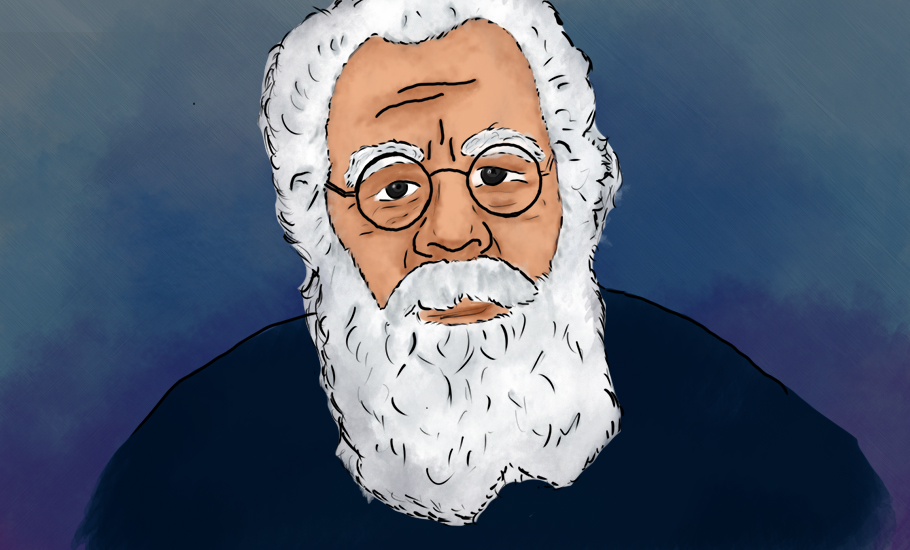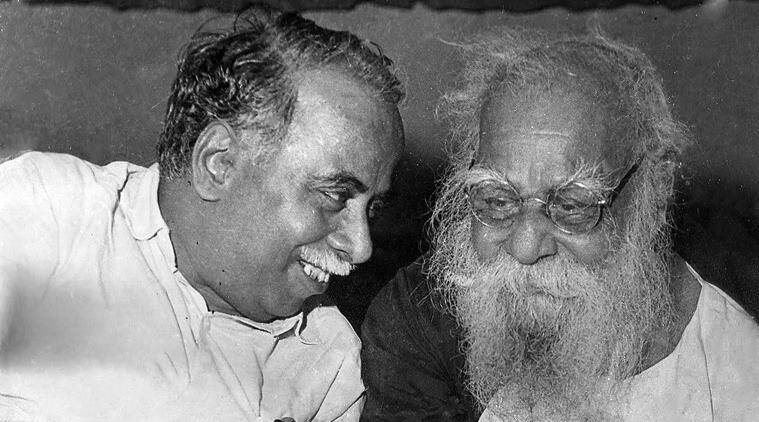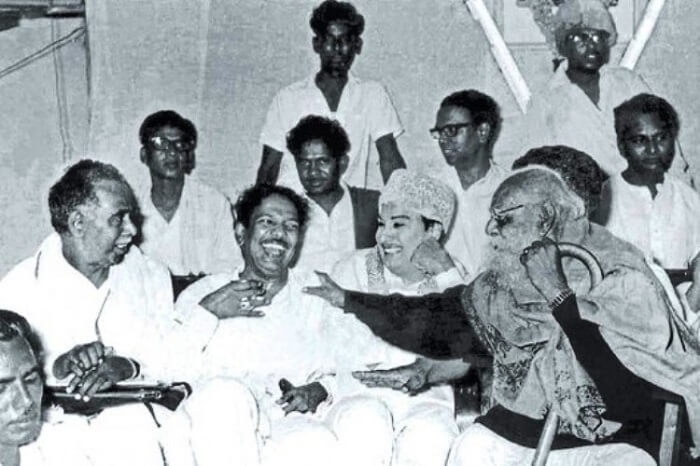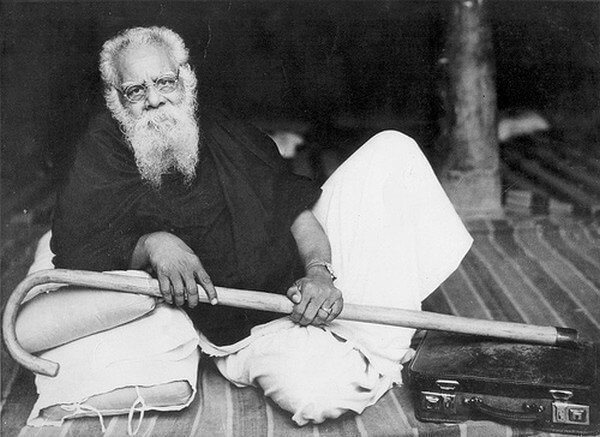
- Home
- India
- World
- Premium
- THE FEDERAL SPECIAL
- Analysis
- States
- Perspective
- Videos
- Sports
- Education
- Entertainment
- Elections
- Features
- Health
- Business
- Series
- In memoriam: Sheikh Mujibur Rahman
- Bishnoi's Men
- NEET TANGLE
- Economy Series
- Earth Day
- Kashmir’s Frozen Turbulence
- India@75
- The legend of Ramjanmabhoomi
- Liberalisation@30
- How to tame a dragon
- Celebrating biodiversity
- Farm Matters
- 50 days of solitude
- Bringing Migrants Home
- Budget 2020
- Jharkhand Votes
- The Federal Investigates
- The Federal Impact
- Vanishing Sand
- Gandhi @ 150
- Andhra Today
- Field report
- Operation Gulmarg
- Pandemic @1 Mn in India
- The Federal Year-End
- The Zero Year
- Science
- Brand studio
- Newsletter
- Elections 2024
- Events
- Home
- IndiaIndia
- World
- Analysis
- StatesStates
- PerspectivePerspective
- VideosVideos
- Sports
- Education
- Entertainment
- ElectionsElections
- Features
- Health
- BusinessBusiness
- Premium
- Loading...
Premium - Events

Why Periyar and his ideals still matter in Tamil Nadu
EV Ramasamy Naicker, who was better known as Periyar and celebrates his birthday on September 17, was an enigma of sorts.

EV Ramasamy Naicker, better known as Periyar, was an enigma of sorts. The leader of the rationalist movement, founded the Dravidar Kazhagam, a split in which later brought about the birth of the Dravida Munnetra Kazhagam (DMK). The Dravidian movement removed the Congress from power in Tamil Nadu and has not looked back since. Ironically, the man who brought about the transformation in Tamil...
EV Ramasamy Naicker, better known as Periyar, was an enigma of sorts. The leader of the rationalist movement, founded the Dravidar Kazhagam, a split in which later brought about the birth of the Dravida Munnetra Kazhagam (DMK). The Dravidian movement removed the Congress from power in Tamil Nadu and has not looked back since. Ironically, the man who brought about the transformation in Tamil Nadu politics resulting in the ouster of the Congress from power, was himself an activist of the Congress party, having joined that party in 1919.
Erode Venkata Ramasamy was born on September 17, 1879 to a Kannada Balija merchant family in Erode, then a part of Coimbatore district. In 1929, EVR announced the deletion of the caste title Naicker from his name at the First Provincial Self-Respect Conference of Chengalpattu. Ramasamy was a theist until his visit to Kasi (Varanasi), after which his views changed and he became an atheist. To EVR’s shock, he was refused meals at choultries, which exclusively fed Brahmins. This incident had a profound impact on him.
As a Congressman, EVR had participated in programmes spreading the use of Khadi, picketing of toddy shops, boycott of shops selling foreign cloth, and eradicating untouchability. In 1921, Periyar courted imprisonment for picketing toddy shops in Erode, when his wife and sister too took part. He was again arrested during the Non-Cooperation movement and the Temperance movement. In 1922, Periyar was elected the President of the Madras Presidency Congress Committee during the Tirupur session, where he stressed the need for reservation in government jobs and education, but when this was resisted, he left the party in 1925.
Subsequently, he devoted his life to the cause of social justice, spearheaded the Vaikom Satyagraha to gain temple entry and the right to use public roads for every Hindu irrespective of caste or creed. He received the title Vaikom Veeran.
From 1929 to 1932, Ramasamy made a tour of British Malaya, Europe, and Soviet Union, the latter influencing him the most, and taking his career closer to Marxism. He championed the cause of Self-Respect. Things took a dramatic turn when he threw himself into the anti-Hindi agitation, particularly when the then Chief Minister introduced Hindi as a compulsory language of study in schools.
In 1939, EVR became the head of the Justice Party, and in 1944, he changed its name to Dravidar Kazhagam. The party later split, with one group led by CN Annadurai forming the DMK in 1949. While continuing the Self-Respect Movement, he also advocated the setting up of an independent Dravida Nadu (land of the Dravidians). EVR was upset that though Jinnah and the British Raj had promised him the creation of Dravidastan on the lines of Pakistan, but he was let down at the time of Independence.
Flashpoint on I-day
EVR could not reconcile himself to the situation of being part of an Indian nation. Few were aware that it was the first Independence Day—August 15, 1947, that led to a public spat between Dravidar Kazhagam leaders Periyar and his general secretary Anna (CN Annadurai), ultimately resulting in the birth of the DMK.
The minor differences between Periyar and Anna reached a flashpoint on the eve of the nation attaining Independence in 1947. Periyar’s call to observe India’s freedom day on August 15, 1947, as a Day of Sorrow and mourning was repudiated by his own general secretary and foremost disciple Anna in a statement, opposing the call to observe it as a Day of Sorrow. Instead, August 15 should be celebrated as a Day of Joy, he announced.
The Periyar-Anna discord came into the open, causing consternation in the camp of Periyar followers. Periyar wrote that Anna’s statement against his decision amounted to disloyalty and an act of betrayal.

Periyar and Anna drifted apart. A conference of the Dravidar Kazhagam convened in Tuticorin was boycotted by Anna. However, the move to re-introduce Hindi in schools became an occasion for a re-union at the Erode conference on October 23, 1948, when Periyar asked Anna (who was present) to take over and run the organisation—Periyar said Anna will take care of the keys from now on—Anna remarked that he may have the keys but the suitcase would remain with Periyar!
A meeting with a twist
On May 14, 1949, a dramatic development took place at Tiruvannamalai. Rajaji, the then-Governor General of India was on a visit to Tiruvannamalai. There he met Periyar, accompanied by Maniyammai, his personal assistant, and had discussions for over an hour. When newspapers published this report, members of the DK were shocked, and had no clue why they met and what transpired at the meeting.
One must remember that Rajaji was always considered a Brahmin by the DK which was against what it called Brahmin domination. Annadurai (popularly known as Anna), the DK general secretary and considered to be Periyar’s heir apparent, referred to this meeting in Dravida Naadu, a Tamil weekly which had Anna as its editor, and wondered what transpired there. There was no response from Periyar.
Who was Maniyammai? She was born as Gandhimathi to Kanagasabai Mudaliar of Vellore who was a member of the Justice Party. Soon after her father’s death, she joined the DK founded by Periyar in 1942–43. She liked to call herself Arasiyalmani. She became Periyar’s personal assistant, taking care of him. Periyar began calling her Maniyammai.
Despite the anti-Brahmin rhetoric of the DK, why should Periyar consult Rajaji, that too in the presence of Maniyammai? This was a question that intrigued senior DK leaders like Annadurai.
At a subsequent meeting in Coimbatore, Anna, in the presence of Periyar, again raised the issue and wanted Periyar to reveal what he discussed with Rajaji. Periyar merely said it was a personal matter and had nothing to do with the organisation. Yet again at the next meeting in Panruti, Anna provoked Periyar, wondering what could be so personal that Periyar did not want to divulge.
A wedding & a divorce
On June 19, 1949, Periyar released a statement in Viduthalai that “in view of his poor health, he wanted to hand over the organisation to a capable person but he could not find even one such person. Therefore, I have decided to appoint a heir to the organisation, who would conduct its affairs. It was to discuss this situation that I met Rajaji”.
This set alarm bells ringing in the DK, as it was only a few months earlier that he wanted to hand over the DK to Anna but now he had changed his tune.

Periyar, replying to criticism from various quarters, set the record straight on June 28 in another statement where he said that Maniyammai had looked after him these last five years. She was also committed to the DK ideology. Therefore, he had decided to enter into a wedlock with Maniyammai.
Periyar said he wanted to set up a Trust for his personal property and that of the DK under the chairmanship of Maniyammai, and that she would be his political and personal heir. (Sources close to Periyar had indicated that Maniyammai, being a woman could not be named his heir, and therefore he took to the legal recourse of marrying her so that she could become his legal heir.)
That Periyar who was close to 70 would marry Maniyammai, around 32, came as a shock to several leaders in the organisation. Intermediaries tried to convince Periyar against the proposal. Anna was urged by a section of the workers to resolve the situation. On July 3, 1949, several leaders of the DK issued a statement urging Periyar to reconsider the move.
Two delegations of senior leaders met with Periyar but failed to dissuade him.
A number of regional leaders, individually or in small groups, issued statements that they would not participate in party activities under Periyar because they were against the proposed marriage.
The Dravidar Kazhagam (DK) Administrative Committee met in Thennoor on July 10, 1949 and passed a resolution asking Periyar not to proceed with the marriage. The DK executive, attended by 32 of its 46 members, resolved to send a team to convince Periyar to reconsider the decision.
Divide & progress
However, before the team could meet him, Periyar announced that his marriage with Maniyammai had been legalised. The committee received a telegram that the marriage had taken place.
On July 10, Viduthalai announced that Maniyammai would henceforth be called EVR Maniyammai. Anna was requested by DK workers to guide them.
Differences between Periyar and Anna had already surfaced during Periyar’s call in September 1945 to form a militant band called Mahaana Dravida Viduthalai Padai (Provincial Dravidian Liberation Force) and asked DK men to join the force and wear black shirts. Anna disliked the concept.
Periyar convened a Black Shirts conference in Madurai in May 1946 and asked Anna to be the chief speaker, as if to force a reluctant Anna to wear the black shirt. Much as he disliked it, Anna wore a black shirt, borrowed from the tall and gangling figure of Nedunchezhiyan, and as everyone could see on stage, it did not fit him at all!

The breakaway group of DK met in Chennai on September 17, 1949, when Anna read out the statement about the birth of the new organization called DMK.
At a public meeting in Chennai on September 19, Anna, amidst pouring rain, set out the priorities of the party which would not be a rival to the DK.
Instead, the two would function as a double-barrel gun, with the DMK subscribed to the socialist way of life on the economic front, even while outlining the party’s political agenda of wanting to carve out a separate state for the Dravidians. Anna said the post of president would be kept vacant for Periyar.
Some believed that the Maniammai issue was just a smokescreen. Anna and his supporters wanted to enter parliamentary democracy and try to capture power by contesting the general elections to Parliament and the State Assembly. According to party insiders, the Anna group decided to use the breakaway since Periyar would not allow taking part in elections.
In fact, Periyar even campaigned against the DMK in the 1960s but things changed after the DMK came to power in the state. Periyar wished Anna well. Things soured in the seventies. However, Periyar did mediate during the discord between Karunanidhi and ADMK founder MG Ramachandran, and tried to prevent the split, but could not. The birth of the ADMK led to further fragmentation of the Dravidian movement but the Congress could not take advantage of it.
Rationalism finds few takers
Periyar always considered himself a street-smart activist, continuing his agitations for widow marriage, right to property for women, struggle against untouchability, and the system of marriage which discriminated against women by demanding that women abide by the norms of chastity while the men got away scot-free.
In 1956, despite warnings from P Kakkan, the president of the Tamil Nadu Congress Committee, Periyar organised a procession to the Marina to burn pictures of the Hindu God Rama.
Periyar was subsequently arrested and confined to prison. Sections of Hindus criticised him for allowing Lord Rama idol to be slapped with chappals during a DK procession.
He also attacked Tamilians as “barbarians” and Tamil as a “barbaric language”. When asked to explain, Periyar pointed out that Tamil was still clinging itself to past glory and that there was no effort at reforming the language despite the passage of time.
For all his strength and image as a tall and powerful Dravidian leader to whom both the DMK and AIADMK bowed out of respect, Periyar found his ideals being left behind as crowds continued to throng temples and the institution of marriage flourished. His idea of a separate Dravida state had very few takers and ultimately died a silent death.
Periyarism continues to dominate the Tamil Nadu political scene, as the BJP struggles to make inroads in the Dravidian bastion. The movement for reservation for OBCs and SCs/STs, the struggle for emancipation of women, and against discrimination towards low-caste Hindus were the foundation of the Dravidian movement.

For the moment, it appears that Periyar’s path of Dravidian supremacy holds good, although his criticism of Hindu religion, customs and practices has been largely ignored by the Hindus who are flocking to temples in larger numbers than before.
The movement for self-respect and the crusade against Hinduism and superstitions have fallen by the wayside. Even mainstream parties like the DMK and AIADMK which publicly proclaim that they swear by Periyar, maintain a safe distance from the diatribe against Hindu religion. It is not that there is a surge towards the saffron brigade but there are few takers for the Periyar brand of rationalism even within the DMK and AIADMK.
Politicians of these parties now jostle for space in temples and are keen to receive temple honours. Even as the DMK gets ready to celebrate the Mupperum Vizha, including the birth anniversary of Periyar, it maintains physical and social distancing from Periyar-inspired rabble-rousers whenever they try to denigrate Hindu gods and goddesses.
The Periyar slogan of rationalism is thus seen as a liability in today’s political firmament.
